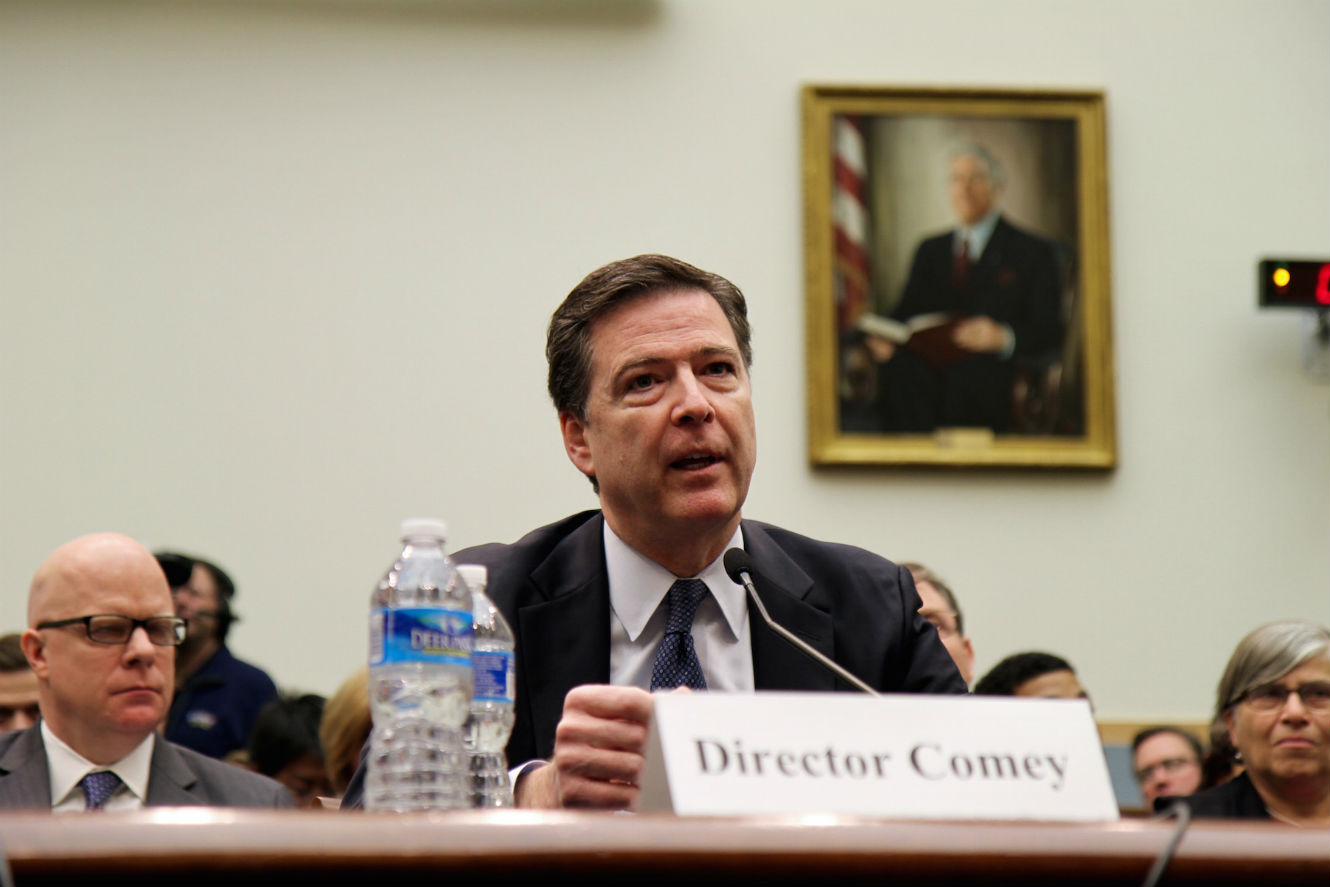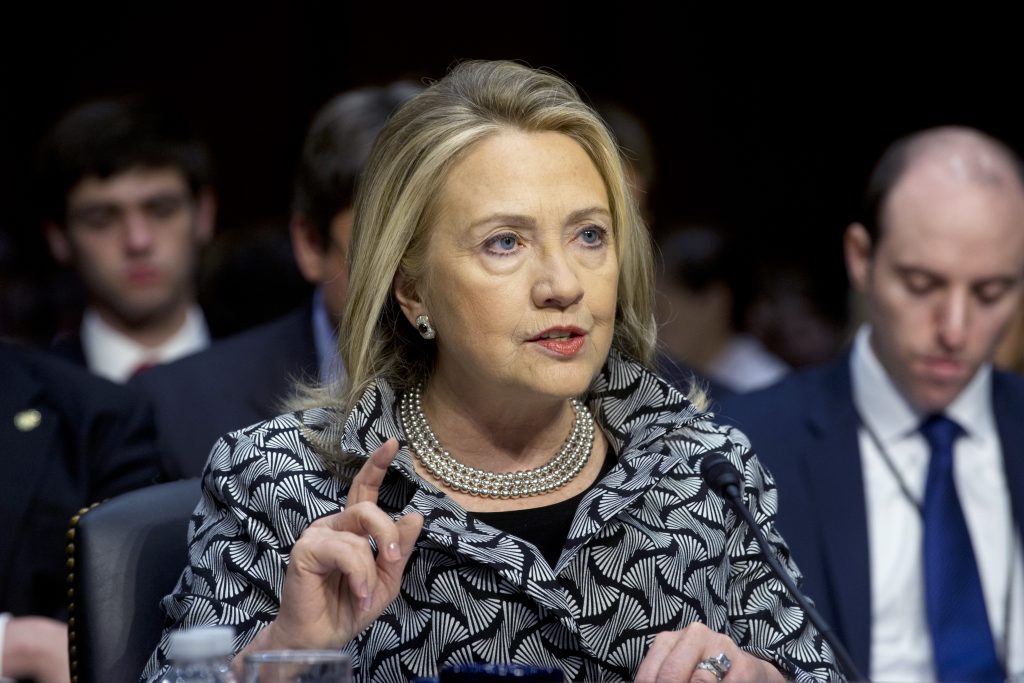- Joined
- Sep 18, 2011
- Messages
- 83,522
- Reaction score
- 57,981
- Location
- New Mexico
- Gender
- Male
- Political Leaning
- Progressive
Leaving aside the ex post facto aspect of your argument, when has President* Biden announced that the documents in question have been reclassified?For documents there ARE accepted procedures and steps to be taken in order to be declassified. And again, if you believe that a president is the ultimate authority of declassification, then you contradict yourself when you make a argument that puts a former president in a position that knows more about the classification status of a document than a current president. So, the claim that a document can be declassified because Trump decided at some point to do it without anybody in the next administration knowing about it (including the sitting president) cannot stand.
I never said there isn't, just that the President isn't bound by those procedures.I don't know where you get your BS information but there definitely IS a procedure for declassifying information (see below).

Gross negligence wasn't enough to prosecute Clinton under 18 U.S. Code § 793.

(f) Whoever, being entrusted with or having lawful possession or control of any document, writing, code book, signal book, sketch, photograph, photographic negative, blueprint, plan, map, model, instrument, appliance, note, or information, relating to the national defense, (1) through gross negligence permits the same to be removed from its proper place of custody or delivered to anyone in violation of his trust, or to be lost, stolen, abstracted, or destroyed, ... (emphasis added)
After lying about Page, the General Flynn witch hunt, the Russian Collusion hoax, the Whitmer kidnapping fiasco, and the interference in the 2020 election to (ultimately successfully) elect Biden, why should we trust anything the FBI has to say any more than we can trust Trump?I know I would trust the FBI and CIA with secrets before I would Trust Trump the known liar and con man
Leaving aside the ex post facto aspect of your argument, when has President* Biden announced that the documents in question have been reclassified?
...
I never said there isn't, just that the President isn't bound by those procedures.

Do presidents have 'the ability to declassify anything'?
The blockbuster article in The Washington Post saying President Donald Trump had "revealed highly classified informationwww.politifact.com
(f) Whoever, being entrusted with or having lawful possession or control of any document, writing, code book, signal book, sketch, photograph, photographic negative, blueprint, plan, map, model, instrument, appliance, note, or information, relating to the national defense, (1) through gross negligence permits the same to be removed from its proper place of custody or delivered to anyone in violation of his trust, or to be lost, stolen, abstracted, or destroyed, ... (emphasis added)


 www.justsecurity.org
www.justsecurity.org
I'll ask again, has Biden ever announced that the documents have been reclassified? Because if he hasn't then the question is whether Trump actually declassified them--if he did they are, if he didn't they aren't.If you accept the position of the current CIC (the foremost authority of classification ) that the documents ARE classified
The president doesn't need to issue an executive order do declassify something--as simple an act as handing a document to someone that lacks the clearance or reading something to a foreign leader over the phone is enough.He is not bound by them because he can issue a new Executive Order to change the procedures,but even executive orders require signatures and documentation
There's a problem with the article, encapsulated in this statement: "Despite what may appear to be the plain meaning of 793(f), the negligent mishandling of classified material is not a civilian criminal offense. (emphasis added)" If you are arguing against the plain meaning of the text, you are almost certainly wrong. Likewise Comey's assertion that because a case might not have been argued before on the grounds of gross negligence, it couldn't be in Clinton's case. The problem with arguing that Clinton's offense required intent is it doesn't match the text of the law. Intent is mentioned, for the five paragraphs: "Whoever, for the purpose of obtaining information respecting the national defense with intent or reason to believe that the information is to be used to the injury of the United States, ..."; "Whoever, for the purpose aforesaid, ..."; "Whoever, for the purpose aforesaid, ...";Sorry bud, the Supreme Court has the final say.
Please read the following:

Why Intent, Not Gross Negligence, is the Standard in Clinton Case
On July 5, FBI Director James Comey announced that he was not going to recommend the filing of criminal charges against Hillary Clinton over her use of awarontherocks.com
There's a problem with the article, encapsulated in this statement: "Despite what may appear to be the plain meaning of 793(f), the negligent mishandling of classified material is not a civilian criminal offense. (emphasis added)"
If you are arguing against the plain meaning of the text, you are almost certainly wrong.
Likewise Comey's assertion that because a case might not have been argued before on the grounds of gross negligence, it couldn't be in Clinton's case.
The problem with arguing that Clinton's offense required intent is it doesn't match the text of the law.

Intent is mentioned, for the five paragraphs: "Whoever, for the purpose of obtaining information re specting the national defense with intent or reason to believe that the information is to be used to the injury of the United States, ..."; "Whoever, for the purpose aforesaid, ..."; "Whoever, for the purpose aforesaid, ...";
I'll ask again, has Biden ever announced that the documents have been reclassified? Because if he hasn't then the question is whether Trump actually declassified them--if he did they are, if he didn't they aren't.
The president doesn't need to issue an executive order do declassify something--as simple an act as handing a document to someone that lacks the clearance or reading something to a foreign leader over the phone is enough.

i love this postIt wont
So you are arguing that the Supreme Court can never get it wrong? You are arguing that the phrase " The Supreme Court ruled incorrectly" is without any real meaning because the Supreme Court is the body that provides whatever meaning the Constitution has?Well, I am arguing against the plain meaning of the text, and the reason for that is the Supreme Court ruling in Gorin. The Supreme Court has the ultimate say in determining the meaning of any statute; and also, which parts of any particular statute is unconstitutional and should be struck out.
Comey faced a situation in which there was great certainty that if the DOJ charged Clinton, and Clinton was somehow convicted, the courts would later overturn the conviction anyway. That was part of what Comey was trying to avoid. The fact that no one had ever been tried and convicted of this crime, and the fact that the Supreme Court already ruled in a way as to make sub paragraph likely unconstitutional, means that it was unlikely that the DOJ could ever secure a conviction. And it is policy of the DOJ, and it's fair, in and of itself, to refrain from prosecuting cases where there is no hope or little hope of securing a successful prosecution.
See the Canons of Judicial Interpretation:It doesn't have to match the text of the law.
See Judicial Review:

Judicial review - Wikipedia
en.wikipedia.org
Plain meaning
When writing statutes, the legislature intends to use ordinary English words in their ordinary senses. The United States Supreme Court discussed the plain meaning rule in Caminetti v. United States, 242 U.S. 470 (1917), reasoning "{i}t is elementary that the meaning of a statute must, in the first instance, be sought in the language in which the act is framed, and if that is plain... the sole function of the courts is to enforce it according to its terms." And if a statute's language is plain and clear, the Court further warned that "the duty of interpretation does not arise, and the rules which are to aid doubtful meanings need no discussion."
Not at all--the point is that the absence of any mention of intent in this case where it is clearly mention in other cases of the same legislation indicates that in this case intent isn't necessary--if it was, it would have been mentioned just as it was in the other cases.Yes, intent is mentioned in the other crimes, each paragraph except for h is a separate crime. What's your argument, exactly? I don't follow you. You were arguing that intent was not needed previously, and now you are referencing the fact that the other crimes in the statute do mention intent. Do you understand how that might hurt your argument?
So you are arguing that the Supreme Court can never get it wrong? You are arguing that the phrase " The Supreme Court ruled incorrectly" is without any real meaning because the Supreme Court is the body that provides whatever meaning the Constitution has?
In other words, if the meaning is plain then the meaning is plain, full stop--though the meaning in question is that of the time that the constitution or legislation in question was created rather than what it might be now.
Intent will be the easiest thing to prove to a jury. Slam dunk.So, with respect to this specific statute, the Supreme Court said the law was unconstitutional without the intent element. And because the Supreme Court said it was unconstitutional without the intent element the statute was effectively revised.
This is how case law works.
The judicial branch routinely modifies laws created by the legislative branch.
So, it doesn't matter that the text says or implies that intent need not be proven. The Supreme Court said it does, and they have the final say, and this is how our system works
Not at all--the point is that the absence of any mention of intent in this case where it is clearly mention in other cases of the same legislation indicates that in this case intent isn't necessary--if it was, it would have been mentioned just as it was in the other cases.
You think he'd have noticedBiden never said that he reclassified these documents.
So what does this logically mean?
If you accept the position of the current CIC (the foremost authority of classification ) that the documents ARE classified and you believe that the documents were never REclassified, then at no point in the past were those documents ever declassified.
You seem very keen to take Mr Trump at his word. Do you believe him when he says this too?The president doesn't need to issue an executive order do declassify something--as simple an act as handing a document to someone that lacks the clearance or reading something to a foreign leader over the phone is enough.
When did I say I took Trump at his word? I have no problem with requiring him to prove he declassified the documents in question. I'm simply pointing out that when it comes to declassification, presidents aren't bound by any of the regulations or procedures that apply to everyone else.You seem very keen to take Mr Trump at his word.
Well they are in the sense that at some point it has to be acknowledged and recorded and not after he leaves office when it becomes a problem.When did I say I took Trump at his word? I have no problem with requiring him to prove he declassified the documents in question. I'm simply pointing out that when it comes to declassification, presidents aren't bound by any of the regulations or procedures that apply to everyone else.
It's no different than Rudy saying crap in front of the Four Seasons Landscaping office that he wouldn't dare say in a court of law. Trump and his cult will say things on the news that they wouldn't put in legal filings. It's no surprise that Trump's lawyers didn't mention declassification of documents in court papers.Well they are in the sense that at some point it has to be acknowledged and recorded and not after he leaves office when it becomes a problem.
In any case, I doubt you'll see his lawyers argue in court that he declassified anything: without a paper trail from the period, they can't prove it. So don't expect that 'argument' to linger outside forums like this.
It's no different than Rudy saying crap in front of the Four Seasons Landscaping office that he wouldn't dare say in a court of law. Trump and his cult will say things on the news that they wouldn't put in legal filings. It's no surprise that Trump's lawyers didn't mention declassification of documents in court papers.
It is also inconsequential. Whether documents were classified or not doesn't affect the violation of the presidential records act. The only difference is that he may have also broken the Espionage Act too.
True, I doubt there's any kind of paper trail. The only argument I could see his lawyers making is that the act of ordering the documents removed to Mara Largo itself declassified them--just as other presidents declassified documents by simply reading them over the phone or handing them to someone without the clearance to read them. I have no idea how well that would or wouldn't fly.In any case, I doubt you'll see his lawyers argue in court that he declassified anything: without a paper trail from the period, they can't prove it. So don't expect that 'argument' to linger outside forums like this.
